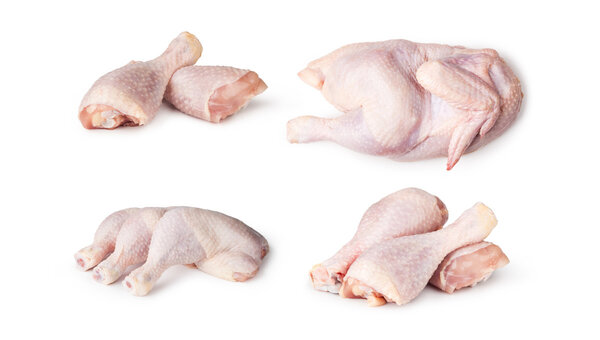Chicken Nutrition: A Comprehensive Guide to Calories, Nutrients, and Health Benefits
Chicken is one of the most popular and versatile protein sources around the world. It's a lean source of protein that's low in fat and high in nutrients, making it an excellent choice for a healthy diet. However, with so many different cuts and preparation methods, it can be challenging to determine the exact nutritional value of chicken. In this article, we'll explore everything you need to know about chicken nutrition, from calories to vitamins.
Introduction to Chicken Nutrition

Chicken is a type of poultry meat that's widely consumed all over the world. It's a rich source of protein, and unlike red meat, it's generally low in saturated fat. Chicken is also a good source of essential nutrients such as vitamins, minerals, and amino acids, making it an ideal food choice for those looking to maintain a healthy diet.
Chicken Calories
The calorie content of chicken depends on the cut and preparation method. A skinless, boneless chicken breast typically contains around 165 calories per 100 grams, while a chicken drumstick with skin can contain up to 200 calories per 100 grams. Chicken wings can be higher in calories, with an average of around 290 calories per 100 grams.
Chicken Nutrition Facts
Chicken is a great source of essential nutrients, including protein, vitamins, and minerals. Here are some of the key chicken nutrition facts:
Protein: Chicken is an excellent source of high-quality protein, containing all the essential amino acids needed by the body.
Vitamin B6: This vitamin is essential for brain development and function, and chicken is an excellent source of it.
Niacin: Chicken is a good source of niacin, which helps maintain healthy skin and nerves.
Phosphorus: Chicken is high in phosphorus, which is important for healthy bones and teeth.
Fat Content of Chicken
The fat content of chicken depends on the cut and preparation method. A skinless, boneless chicken breast is relatively low in fat, with around 3 grams of fat per 100 grams. However, chicken with skin can be higher in fat, with an average of around 8 grams of fat per 100 grams. The highest fat content is found in chicken wings, with an average of around 18 grams of fat per 100 grams.
Carbs in Chicken
Chicken is a low-carb food, making it an excellent choice for those following a low-carb or ketogenic diet. A skinless, boneless chicken breast contains less than 1 gram of carbohydrates per 100 grams, making it an ideal food for those looking to control their carb intake.
Chicken Nutrients Content

Chicken is packed with essential nutrients that are important for maintaining a healthy body. Some of the key chicken nutrients include:
Vitamin B12: This vitamin is essential for red blood cell production and nerve function.
Zinc: Chicken is a good source of zinc, which is important for immune function and wound healing.
Iron: Chicken is a good source of iron, which is important for red blood cell production and oxygen transport.
How Much Fat Does Chicken Have?
The fat content of chicken varies depending on the cut and preparation method. As mentioned earlier, a skinless, boneless chicken breast is relatively low in fat, with around 3 grams of fat per 100 grams. Chicken with skin can be higher in fat, with an average of around 8 grams of fat per 100 grams. The highest fat content is found in chicken wings, with an average of around 18 grams of fat per 100 grams.
How Much Calcium in Chicken?
Chicken is not a particularly good source of calcium, with only around 11 milligrams of calcium per 100 grams.
What Vitamins Are in Chicken?
Chicken is a great source of essential vitamins that are important for maintaining a healthy body. Some of the key vitamins found in chicken include:
Vitamin B6: This vitamin is essential for brain development and function, and chicken is an excellent source of it.
Vitamin B12: This vitamin is important for red blood cell production and nerve function.
Niacin: Chicken is a good source of niacin, which helps maintain healthy skin and nerves.
Vitamin D: Chicken is a good source of vitamin D, which is essential for strong bones and teeth.
Health Benefits of Chicken
In addition to being a great source of nutrients, chicken has many health benefits. Here are some of the key health benefits of chicken:
Weight Loss: Chicken is a low-calorie, high-protein food that can help with weight loss.
Heart Health: Chicken is low in saturated fat and high in unsaturated fat, which can help reduce the risk of heart disease.
Immune Function: Chicken is high in protein and essential nutrients, which can help boost immune function.
Brain Function: Chicken is an excellent source of vitamin B6, which is important for brain development and function.
Is Chicken A Healthy Food?
In conclusion, chicken is a healthy and nutritious food that's packed with essential vitamins, minerals, and protein. Whether you're looking to lose weight, maintain a healthy heart, or boost your immune function, chicken is an excellent food choice. However, it's important to be mindful of the preparation method and cut of chicken, as this can have a significant impact on its nutritional value.